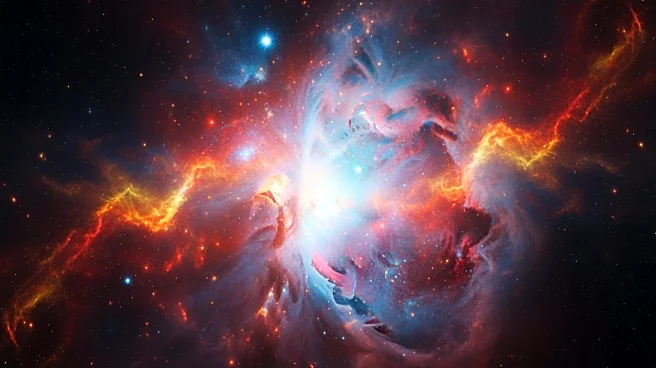What's Happening?
A team of researchers from Keio University, led by doctoral student Tatsuya Kotani and Professor Tomoharu Oka, has measured the temperature of the cosmic microwave background radiation from seven billion
years ago. Their findings indicate that the universe was approximately twice as hot then as it is today, with a temperature of 5.13 degrees above absolute zero. This measurement was achieved using data from the Atacama Large Millimeter/submillimeter Array (ALMA) in Chile, analyzing light from a distant quasar. The study provides a precise confirmation of the Big Bang theory's prediction that the universe cools as it expands.
Why It's Important?
This research is crucial as it reinforces the standard model of cosmology, which predicts the cooling of the universe over time. By confirming the temperature of the universe at an intermediate stage in its history, the study strengthens confidence in our understanding of cosmic evolution. The findings also fill a gap in the timeline of the universe's thermal history, providing a more complete picture of its development. This enhances our ability to predict future cosmic events and understand the fundamental processes that have shaped the universe.
Beyond the Headlines
The study's precision in measuring the universe's temperature at such a distant point in time highlights the advancements in astronomical technology and methodology. It underscores the importance of international collaborations and the use of sophisticated instruments like ALMA in expanding our knowledge of the cosmos. The research also opens up possibilities for further studies on the universe's early conditions and the factors influencing its evolution, potentially leading to new discoveries about the nature of space and time.









